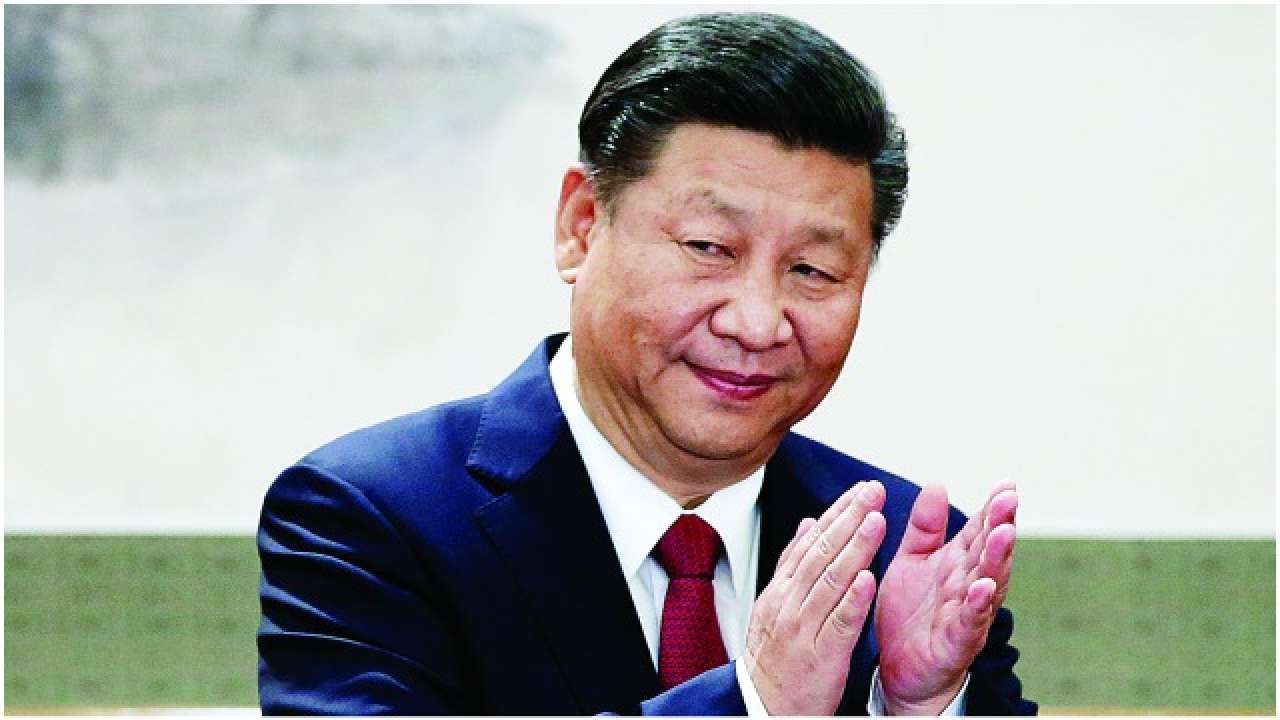
The just-concluded Chinese Communist Party’s 19th Congress is remarkable for the clarity of its disconcerting message to the rest of the world, as well as to the many Chinese who yearn for a more democratic and peaceful state. The two key events of the Congress — Party General Secretary and paramount leader Xi Jinping’s (inset) inaugural Work Report and the appointment of the new seven-man Party leadership of the Politburo Standing Committee (PBSC) — both underline the unity of the message: China is set for the next five years on a course of acute concentration of power under a neo-authoritarian leader to enable him to deal with both domestic and external challenges robustly, all with the aim of making China Asia’s dominant nation, and a great global power challenging the US’s global influence.
In a three and half-hour-long speech that covered diverse aspects of China’s development and achievements in the past five years and laid out a vision for the next three decades, Xi Jinping promised Chinese nationalists that his next term of five years would mark the beginning of a “new era” in which China would be relentless in its pursuit of hard power and influence abroad so that it can be a true global power, “moving closer to the centre stage and making a greater contribution to mankind”. Internally, the Party would be single-minded in its efforts to further enhance its hold over the country’s politics, economy and society.
Xi’s confident tone was aimed to rally the cadres for the task of building a prosperous and powerful nation by 2049, but inherent in it was also a warning to ‘enemies’ at home and abroad that seek to thwart, divide, or contain China in its rise. The fact that Party elites have agreed or fallen in line to give Xi absolute power so that the promised goal of stability, greater wealth and power can be attained, indicates the support his leadership and vision enjoys.
In a clear break from the post-Mao reform era agreement on ‘collective leadership’, the Congress elevated Xi to the status of a new paramount leader, a modern-day Mao entitled like him to have his ‘thought’ enshrined in the Party Constitution to guide the country. The Communist Party organ, People’s Daily, underlined his higher and special status in its coverage of the new leadership with Xi on the front page and the other six leaders of the PBSC relegated to inside pages.
Xi’s oft-cited ideas such as his call to realise the ‘China dream’ or the ‘great rejuvenation of the Chinese nation’, or his latest call at the Congress for ‘socialism with Chinese characteristics in the new era’, are rooted in the past articulated goals of the CCP leadership. Why then have Xi’s ideas been deemed to be a new body of ‘thought’, elevating him to the status of new helmsman?
Why has the Congress rubber-stamped such a concentration of power in one man when Deng Xiaoping and the post-Mao reformers established a system of collective leadership to prevent one-man dictatorship from re-emerging? The reasons are embedded in belief, faith and hope. Xi’s ‘China dream’ resonates with the nationalists. His search for a new narrative that seeks to root China in its past traditions as well as in a new modernity with empowering global reach appeals to many. The vision disapproves the clamour for Western values, it’s individualism, corruption and competitive political culture, and stresses collective well-being and nationalism.
The one-party China model that combines centralisation with elements of a decentralised system, the unity of the political and the military elites with politics in command, a state-led economy married to elements of the market and global mercantilism is the preferred alternative. Most significantly, Xi’s strong leadership is seen as a crucial factor for guiding China’s transition from a regional power to a great global power capable of providing leadership in development, tackling environmental problems, and realising an alternative Sino-centric security architecture. Its plan to connect Asia, Africa and Europe to China through its Belt and Road Initiative (BRI) is the economic component of such a great power strategy and has been now enshrined in the Party’s Constitution.
China’s ‘new era’ thus portends aggressive diplomacy, strategic competition with the US and major Asian powers like India and Japan, and a series of controlled crises abroad to expand China’s territorial ambit and political influence. A more robust continuation of the course initiated in his first five-year term is to be expected.
Xi’s speech is also unlikely to comfort those aspiring for some democratic space and protection of individual rights in China, or those seeking to expand it in Hong Kong or preserve it in Taiwan, or the hapless people of Tibet and Xinjiang that are struggling in a losing battle to survive as ‘a people’ with distinct cultures. CCP’s vision of China promises to submerge all such identities and aspirations — ‘those who want to divide China’ — into the rising Chinese nation.
Great power competition and strategic uncertainty are inevitable.
The author is associated with Vivekananda International Foundation